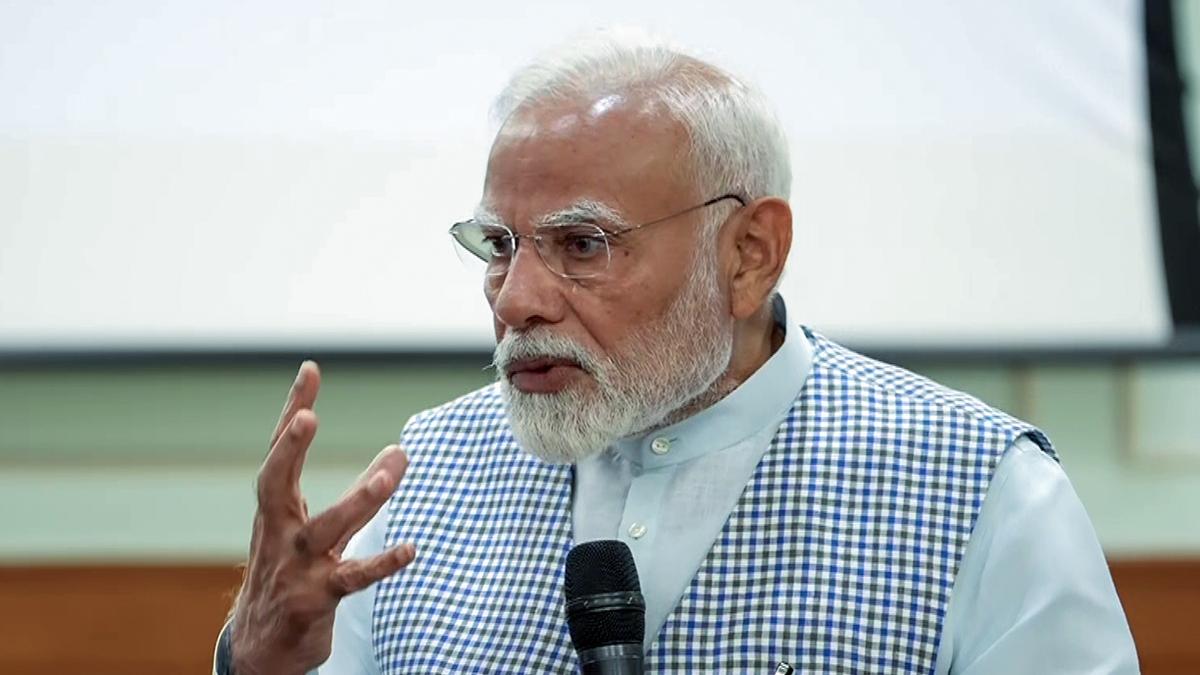
Appeasement politics brought Congress to power but ordinary Muslims faced neglect: PM Modi on Waqf law
The Hindu
Prime Minister Modi highlights the significance of the new Waqf law for social justice and democracy in India.
Prime Minister Narendra Modi on Tuesday (April 8, 2025) said the new Waqf law was a significant move of his government towards social justice, contending that the previous law, enacted in 2013, was an attempt for appeasement of land mafia and Muslim fundamentalists.
Addressing an event, Mr. Modi said the politics of appeasement was at the root of the debate over the issue of Waqf and it brought the Congress to power and some Muslim fundamentalists became rich.
Also read | Pleas against Waqf Act: Centre files caveat in Supreme Court, hearing likely on April 15
"But, the moot question is what benefits did the ordinary Muslims get? What did the poor Pasmanda Muslims get? They were only subjected to neglect. They did not get education, they faced unemployment and Muslim women faced injustice like Shah Bano, where their constitutional rights were sacrificed at the altar of fundamentalism," Mr. Modi said.
The Prime Minister said a similar attitude led to the country's partition in 1947 when Congress leaders did not wipe out the idea of a separate nation that was nursed by "some fundamentalists" and not ordinary Muslims.
He said the Waqf law enacted in 2013 by the Congress-led UPA government created an illusion that the Act was above the Constitution.
"The amendment to the Waqf law in 2013 was an attempt to please Muslim fundamentalists and land mafia. This law created an illusion that it was above the Constitution. The path to justice laid down in the Constitution was narrowed down by the Waqf law," Mr. Modi said.

It is not often that an election in the Thiruvananthapuram Corporation makes much news outside Kerala or even the capital. But the elections in 2020 were different as it culminated in the Communist Party of India (Marxist) [CPI(M)]’s Arya Rajendran becoming the youngest Mayor of the Corporation at the age of 21, an event which got attention far and wide. Now, five years later, an old tweet on that election by another young person in the running to be the Mayor of New York has gone viral.

 Run 3 Space | Play Space Running Game
Run 3 Space | Play Space Running Game Traffic Jam 3D | Online Racing Game
Traffic Jam 3D | Online Racing Game Duck Hunt | Play Old Classic Game
Duck Hunt | Play Old Classic Game










